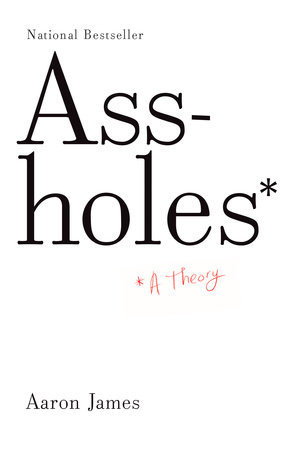The objectivity of “oops,” “shit” and “fucking”
Many foul terms–especially the foulest of the foul–can at first seem to be little more than expressions of ugly attitudes. Terms such as “shit” and “fucking” can seem, at first blush, to be nothing more than a way of venting or spouting one’s unpleasant feelings, in an ejaculatory or cathartic burst conveyed though inherently emotive words.
That picture can seem so natural that it is interesting to see if we can think about foul language in a radically different way. We get help in this from David Kaplan, the eminent philosopher of language (UCLA), and his analysis of the meaning of “oops” and “ouch.” (In a great and famous unpublished paper,but also in a lecture easily found on the web.)
Kaplan suggests that, alongside “descriptive” terms whose meaning can be given by a definition (e.g. “fortnight”), we can explain the meaning of “expressive” terms (e.g. “damn,” “bastard,” “ouch,” “oops,” “goodbye”) in terms of an idea of “expressive correctness.” So suppose someone sincerely uses an expressive term. This doesn’t simply *report* certain purported facts (“ouch” doesn’t just mean “I am in pain”). It does, however, purport to “display” things as being a certain way. I display the fact that I am in pain when I say “ouch,” and I display the fact that I despise someone if I say “that bastard.” Use of the term is *expressively correct*, says Kaplan, when the supposed fact holds (I say “ouch” and I am, in fact, in pain; I say “that bastard” and I do indeed despise the person). Use of the term is *expressively incorrect* when the supposed fact doesn’t hold (when I’m not really in pain, but faking to get attention; or when I don’t despise the person at all).
But now consider “oops,” which, unlike “ouch,” as an element of objectivity. To say “oops,” Kaplan suggests, is (roughly) to purport to display the fact that *one has observed a minor mishap.” So saying “oops” will be (expressively) correct when one has just seen someone inadvertently break a wine glass, but *incorrect* when the mishap isn’t minor (e.g., a whole building falls down, killing hundreds, in which case “oops” could at best be a macabre and vile joke). So whereas the correctness of “ouch” depends entirely on one’s state of mind, the correctness of “oops” also depends on the world, independently of one’s subjective attitudes.
Now turn to foul language. For any foul term, we can ask whether its correctness conditions are fully subjective, as with “ouch,” or at least partly objective, as with “oops.” We did that today in my graduate seminar (on the meta-ethics and meaning of foul language) while discussing Kaplan’s paper. Our interesting conclusion was that *almost all* of the foul terms we could think of (leaving aside racial epithets, which we’ll get to later)–including the foulest of the foul–were best seen as *objective* expressives. Their correctness seemed to depend, at least in part, on what is going on in out in the world.
Here’s what we tentatively came up with for correctness conditions, for several foul terms. (If you quibble with the details, the main point is that something more than the speaker’s state of mind might be in play.)
“shit” — as when “shit!” is said after a fender bender (in contrast with something’s being “shitty,” or of poor quality). This implies that an unexpected event has occurred that frustrates the speaker’s aspirations (such as avoiding costly auto repairs, getting to work quickly). The aspirations are subjective, or up to the person, but the event in question has to actually occur. Shit happens, and has to happen, for it to be shit: shit has existence as its essence. Or, more plainly: if the fender bender or other untoward event hasn’t actually occurred, it won’t be expressively correct to say “shit!” (Except in fictional cases, when things are fictionally presented as actually happening–a pretty special context.)
“fucking”–as in “the fucking car wouldn’t start, right there in the middle of the road.” This implies major frustration of someone’s plans, though not necessarily the speaker’s. I could be hearing the story of a woman whose car had stalled in the middle of the road and say “really, and the fucking car just wouldn’t start?” Her plans would be majorly frustrated, but (unlike “oops”) I wouldn’t have had to observe the events myself or even myself have the frustrated plans (the event may have passed, in which case there is nothing, as regards that event, to plan for).
“fucker”–as directed at a toaster that burns one’s toast or an electrical outlet that shocks one. The object is personified as having malicious intent. The expressive correctness of the terms depends on whether the metaphor is apt, given the situations descriptive features. (We’d usually say this of more readily personified objects, such as toasters or computers, but perhaps not a stationary rock.)
“mother fucker”–a metaphorical way of saying someone can’t be trusted. You can’t trust him not to have sex with your own mother if he had the chance. The term is inapt if someone is completely trustworthy.
“bastard”–much as with “mother fucker,” implies treachery, that the person in question is a traitor, or would-be traitor.
And, finally, “damn”–Kaplan treats “That bastard X” as akin to “That damn X.” In the seminar, we doubted that equivalence, on the grounds that “damn” isn’t so rich. (Though “damned” or “damnable” does have an older and very rich set of meanings, especially religious ones). We did think Kaplan was right about one use of “damn” itself, which seems to be a purely “subjective” expressive, without external correctness conditions. But this was the *only* case in which that seemed natural among the foul terms we surveyed.
A preliminary conclusion, but striking all the same.

